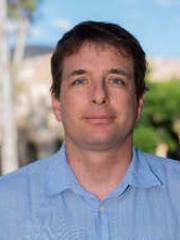Dr Fabio Cortesi

Researcher biography
Doctor Cortesi was awarded a Bachelor of Science with a Major in Plant and Animal Biology from the University of Basel, Switzerland, in 2008. He completed a Bachelor of Science with 1st Class Honours in Marine Biology in 2009 at the University of Queensland, Australia, researching the colourful displays and toxic defences of sea slugs. He then received a PhD with Summa Cum Laude in Zoology in 2014 from the University of Basel, Switzerland, studying the molecular and behavioural function of colourful signals in coral reef fishes.
After completing his remaining Swiss National Service duties, Doctor Cortesi moved to Australia in 2015 to start a short-term postdoctoral appointment at the School of Biological Sciences at The University of Queensland. Upon winning prestigious postdoctoral Fellowships from the Swiss National Science Foundation and the University of Queensland, he transferred to the Queensland Brain Institute (QBI) in early 2016, where he developed his leadership skills under the supervision of Emr. Professor Justin Marshall. In 2020, Dr Cortesi received an ARC DECRA Fellowship, which enabled him to start his junior group under the mentorship of Emr. Prof. Marshall and A/Prof Karen Cheney from The School of the Environment (SENV), UQ. Beginning in 2023, he leads the greater Sensory Neuroscience Lab between QBI and SENV as part of UQ's Marine Sensory Ecology Group.
His research is, amongst others, funded by the SeaWorld Research and Rescue Foundation and the ARC.
Doctor Cortesi's main interests lie in the forces, from molecule to environment, which shape natural biodiversity. Focusing on the evolution of visual systems in fishes and cephalopods, he is trying to understand how other animals perceive the world, how this contributes to the formation of colours and patterns and how this can lead to species diversity. He uses various methods to understand how vision shapes single species and whole communities, including single-cell sequencing, transgenesis experiments, neurophysiological assessments of visual systems and behavioural experimentation.
